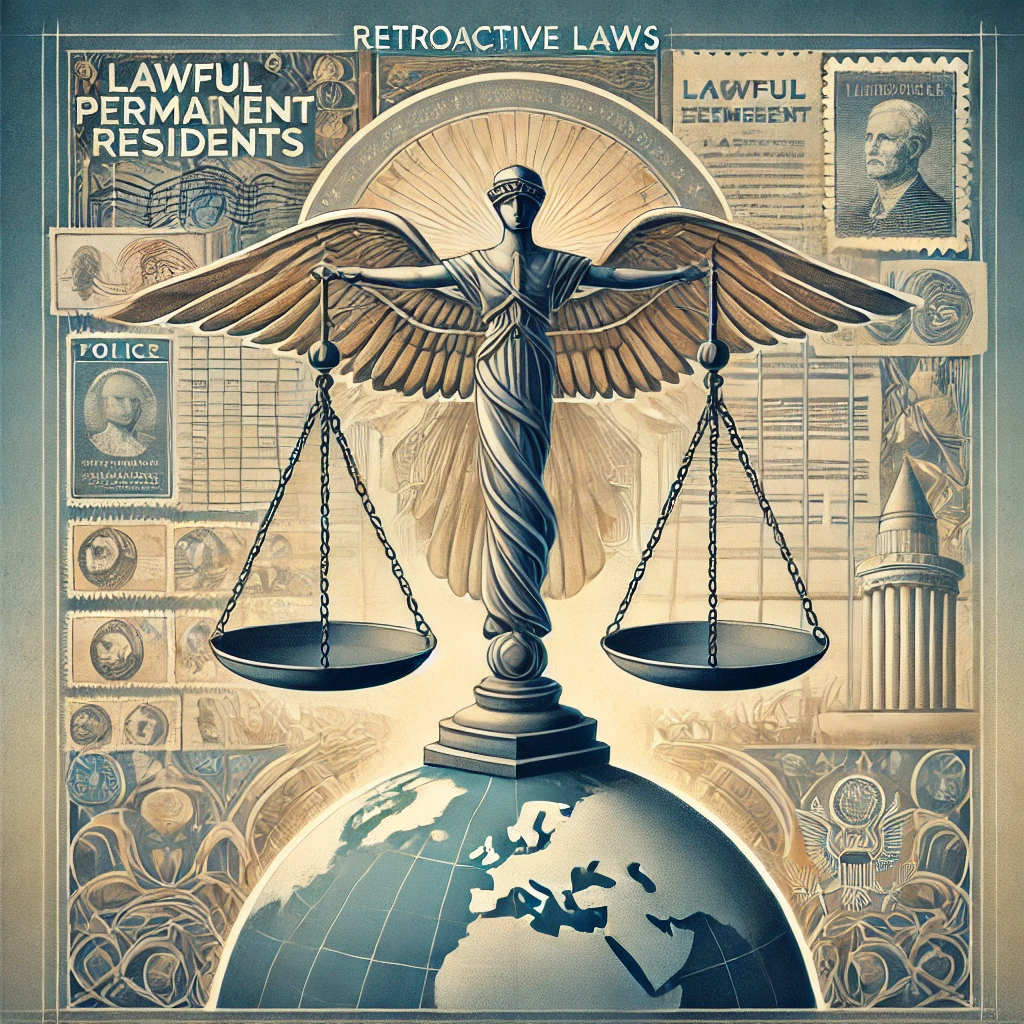
Retroactivity of Immigration Laws and the Rights of Lawful Permanent Residents
Vartelas v. Holder, 566 U.S. 257 (2012).
Substance of the Case:
This case centers on whether the retroactive application of a new immigration law, enacted after a lawful permanent resident’s criminal conviction, can impose a “new disability” on that resident. Specifically, it addresses whether the Illegal Immigration Reform and Immigrant Responsibility Act (IIRIRA) of 1996 can prevent lawful permanent residents convicted before the law’s passage from briefly traveling abroad without risking removal proceedings upon return.
Facts
- Panagis Vartelas, a lawful permanent resident since 1989, pleaded guilty to a felony (conspiring to make counterfeit securities) in 1994.
- Before IIRIRA, lawful permanent residents could return from brief trips abroad without being classified as seeking admission under the Fleuti doctrine.
- In 1996, IIRIRA changed the law, requiring lawful permanent residents with certain criminal convictions to be treated as seeking admission upon return from foreign travel.
- In 2003, Vartelas returned to the U.S. after a week-long trip to Greece. He was deemed inadmissible based on his 1994 conviction and placed in removal proceedings.
- Lower courts upheld his removability under IIRIRA’s new rules, arguing the law applied retroactively.
Analysis
Retroactivity and Fairness:
- The Supreme Court applied the longstanding presumption against retroactive laws, emphasizing that laws should not attach new legal consequences to actions completed before the law’s enactment unless Congress explicitly states otherwise.
- Vartelas’ brief travel abroad after his pre-IIRIRA conviction was penalized under the new law, which added a “new disability” by treating him as an inadmissible alien.
Legislative Intent:
- The Court found no clear indication in IIRIRA that Congress intended the law to apply retroactively to pre-enactment convictions.
Impact on Rights:
- Before IIRIRA, Vartelas had the freedom to travel abroad briefly without risking his residency.
- The retroactive application of IIRIRA restricted this right, amounting to an unjust penalty for past conduct.
Conclusion:
The Supreme Court ruled in favor of Vartelas, holding that the IIRIRA provision regarding “seeking admission” does not apply retroactively to convictions that occurred before the law’s enactment. His brief travel to Greece was governed by the legal regime in place at the time of his conviction, which allowed him to return without jeopardizing his lawful permanent resident status.
Outcome:
- The judgment of the Second Circuit was reversed, and the case was remanded for further proceedings consistent with the Supreme Court’s opinion.
Understanding the Impact:
Think of immigration laws as a tax system. Imagine a new tax law suddenly imposes a steep penalty on a type of income earned years before the law existed. Applying that penalty retroactively would be unfair, as taxpayers didn’t know they’d be penalized for following the rules at the time. Similarly, Vartelas followed the law as it existed in 1994. Penalizing him later under IIRIRA’s new rules is like retroactively taxing past income — it violates principles of fairness and stability.
This case underscores the importance of fairness and clear legislative intent when applying new laws to past conduct, especially in matters as significant as immigration and residency rights.
Let’s Get Started
Your legal challenges deserve personalized attention and innovative solutions. Contact Oware Justice Advocates PC today for a consultation and take the first step toward resolution and peace of mind.
355 South Teller Street, Suite 204,
Lakewood, CO 80226
(Visits to the office are strictly by appointment only)
303-514-6589

